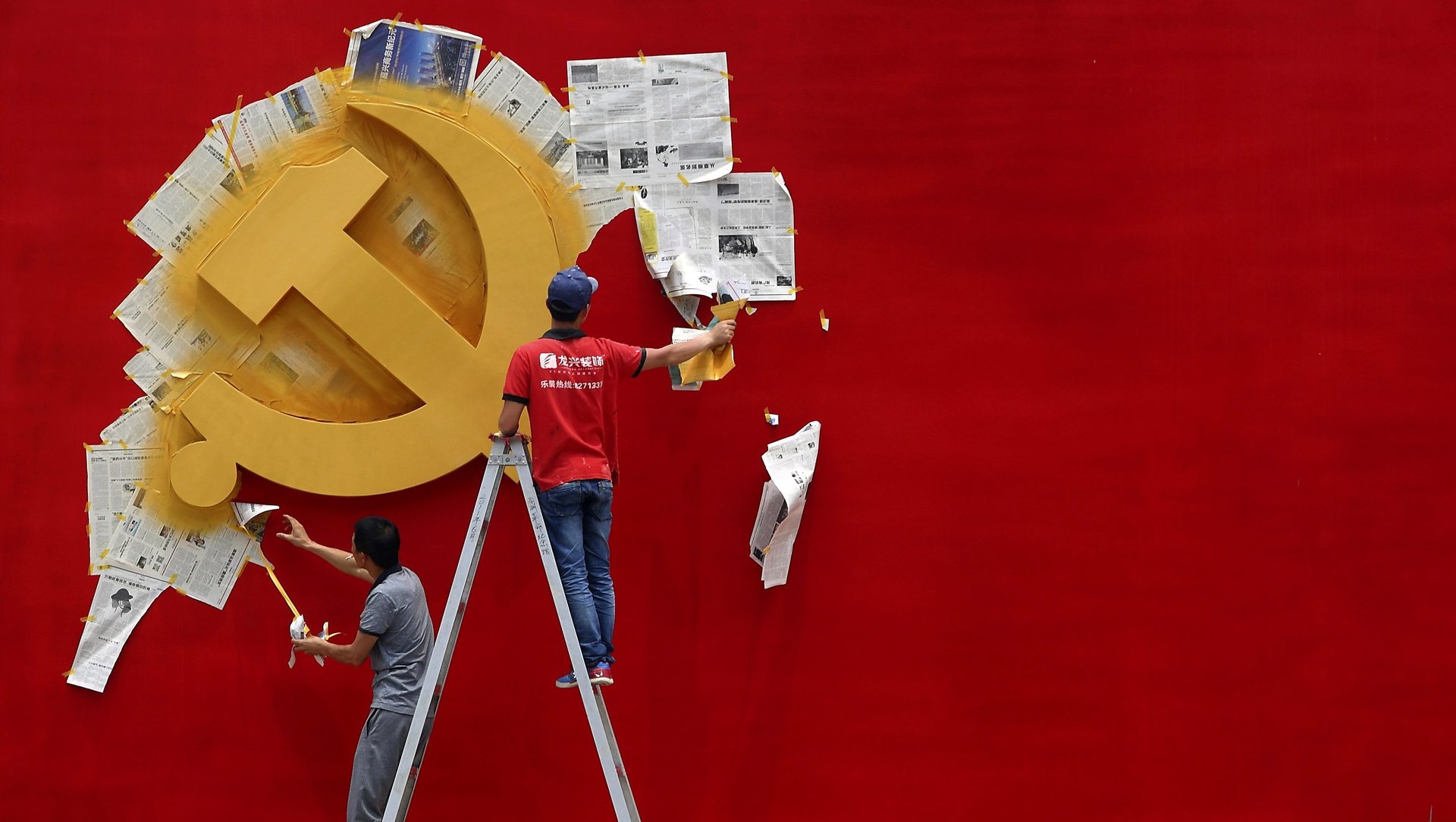China’s official news style guide really wants you to know that Taiwan and Hong Kong are part of China
China’s state news agency Xinhua has published a major update to its style guide, with a huge emphasis on Beijing’s sovereignty over Taiwan and Hong Kong.


China’s state news agency Xinhua has published a major update to its style guide, with a huge emphasis on Beijing’s sovereignty over Taiwan and Hong Kong.
The new guide was published on July 19 (link in Chinese). Xinhua added 57 new rules to its previous style guide, which was first released in May 2015; of the new guidelines, 51 refer to Taiwan and Hong Kong.
“Taiwan is a province of China,” says one new rule, “but taking the feelings of our Taiwan compatriots into account, now we generally don’t call it ‘Taiwan Province,’ and we more often use ‘Taiwan Region’ or ‘Taiwan.'”
Xinhua is one of the main propaganda tools of the Chinese government, feeding thousands of stories everyday to state newspapers, online publications, and broadcasters across China. News organizations in China often use copy from Xinhua, particularly during politically sensitive periods.
Other media outlets also strictly follow Xinhua’s style guide, and journalists in China have always been careful to refer to places only by names deemed correct by the Communist Party, such as “Nansha Islands” for the disputed Spratly Islands in the South China Sea, and “Democratic People’s Republic of Korea” for North Korea.
Now, Chinese journalists have to pay a lot more attention when they write about Taiwan and Hong Kong.
Xinhua expanded its list of verboten Taiwan-related terms from 4 to 38. One new rule bans the use of “Republic of China,” the official title of Taiwan. Another states that the term “Taiwan government” is not allowed for describing any Taiwanese government agencies at the “national” level. A third rule says that National Taiwan University should be simply called “Taiwan University.”
Taiwan has been self-governing and has held independent elections for decades, but Beijing views it as a breakaway province. Tensions between the two sides have remained elevated since Taiwan elected president Tsai Ing-wen to power last year, whose party is sympathetic to Taiwanese independence.
In response to Xinhua’s new rules, Taiwan’s main body that handles affairs with China issued a statement yesterday (July 20) urging Beijing to ”fully report reality and respect the fact that the Republic of China exists.”
Style rules relating to Hong Kong and Macau have also doubled to 10 under Xinhua’s new guidelines. One rule bans the use of the term “separation of powers” to describe Hong Kong and Macau’s political systems, which are, in fact, “dominated by the executive branch,” Xinhua’s rule book says. Another states that the two places cannot be listed independently alongside the name “China.” For example, the term “China-Hong Kong” is not allowed, but “mainland and Hong Kong” is acceptable.
Hong Kong and Macau are guaranteed high degrees of autonomy as Special Administrative Regions of China, under the “one country, two systems” formula. But in Hong Kong in particular, resentment against the mainland is running high amid fears over Beijing’s encroachment on the city’s autonomy, such as its judiciary. Calls for independence, though still marginal, are also rising, and deeply irksome to Beijing.
“Self-praising words and references to Hong Kong and Macau’s opposition should be cited cautiously,” another rule reads. For example, Hong Kong’s pro-democracy Umbrella Movement in 2014 should be referred to as “illegal ‘Occupy Central,'” referring to the original name for the planned civil disobedience movement. The three principal organizers of the Occupy movement cannot be referred to as the “Occupy Central Trio,” as they are widely known in Hong Kong, the rule says—and suggests an alternative name for them, the “Occupy Central Three Clowns.”
Visen Liu contributed to this article.